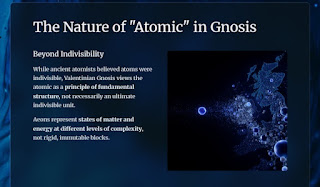Certainly! Here's an 800-word document on the **Sethian Priesthood**, incorporating your provided quotations and references, written in a clear and scholarly style:
---
### The Sethian Priesthood
The Sethian priesthood occupies a significant role in early Gnostic and mystical traditions, linking pre-flood spiritual authority to a lineage of divine mediation and priestly office. According to tradition, Seth was appointed by the Deity as a high priest after the death of Abel, continuing the sacred office of mediation that both Abel and Seth held before the Flood. This priesthood represents not only an earthly office but also a spiritual archetype—a bridge between humanity and the higher divine reality.
The biblical narrative states:
**"And to Seth, to him also there was born a son; and he called his name Enos."**
Enos, whose name signifies “weak, mortal man,” symbolizes the human condition in its frailty, both physically and morally. As Psalm 9:20 reflects, the term suggests a degradation in Seth’s lineage at this point, emphasizing the mortal vulnerability of humanity. This spiritual weakness, however, sparks the beginning of a significant quest: Seth begins to seek a higher power, expressing a divine yearning. He calls upon the name of Yahweh, marking the awakening of spiritual consciousness within him. This awakening reveals the futility of relying solely on human efforts for improvement, prompting recognition of a single Source of Truth.
Seth’s spiritual evolution is thus a journey from mortal limitation toward divine knowledge. He grows gradually into the awareness of the divine mind or Logos, ultimately developing Christ-like qualities. This transformation accelerates as he embraces the liberating Truth that sets one free, learning to think and act consciously and harmoniously in alignment with divine will.
This sacred priesthood finds further elaboration in the Sethian Gnostic texts, particularly in the figure of Melchizedek, a high priest associated with the Sethian Four Luminaries. Gamaliel, a traditional servant of these luminaries, appears to Melchizedek to proclaim the coming of Jesus Christ as the Son of God and commander of the Four Luminaries, belonging to the race of the high priest of the Most High Deity. In Gamaliel’s speech to Melchizedek (IX 5,11-6,10), several prominent Sethian figures are invoked:
* Barbelo, the Mother of the aeons,
* Doxomedon Dom\[edon?], the first born of the aeons and a figure linked to the “washings” (possibly a baptismal motif similar to that found in the Gospel of the Egyptians),
* The Four Luminaries themselves,
* The Man of Light Pigeradamas, and
* Mirocheirothetos, described as the beneficent god of the worlds.
All these are invoked through Jesus Christ, Son of God, underscoring the divine authority and cosmic significance vested in the Sethian priesthood (Melchizedek IX 5,23-6,10).
A distinct feature in the Sethian tradition is the emphasis on baptism, described in Melchizedek’s narrative as involving “waters which are above,” a form of baptism distinct from ordinary Christian water baptism. This suggests a deeper, perhaps spiritual or celestial, dimension to the rite, marking a purification and initiation beyond the material world.
Melchizedek himself acknowledges his earthly priestly role as only a reflection or image of the true High Priest of God Most High, Jesus Christ, who is yet to come (IX 15,11-13). Upon this revelation, Melchizedek offers himself as a sacrifice and declares he will receive baptism “forever among the living and holy names, and in the \[waters]” (IX 16,11-18,7). His ascription of praise follows in the form of a trisagion, a triple hymn of holiness, addressed to various divine entities, affirming his spiritual submission and elevation.
Though fragmentary, the treatise **Melchizedek** reveals a complex interplay between earthly and heavenly priesthoods. The Sethian Four Luminaries are cosmic beings responsible for rapturing or uplifting the enlightened seed of Seth into the Light during baptismal rites. In the **Pistis Sophia** (I.26 and following), Melchizedek himself is described as a “receiver” or one who presides over such raptures, delivering purified souls into the treasury of Light, away from the archons who would consume their material remains.
This tradition frames Melchizedek as an eternal figure—earthly in nature but without clear origin or end—who anticipates the future fleshly advent of Jesus Christ. Jesus, the true “priest of God Most High,” will endure suffering and resurrection and engage in a cosmic struggle against the archons. These archons, malevolent rulers, spread lies not only about Jesus but also about other sacred figures such as Adam, Eve, Abel, Enoch, and Noah.
The victory of Christ and Melchizedek over the archons is assured. Christ appears to Melchizedek to promise both his own final triumph—being the “chief commander of the All”—and that of Melchizedek himself. After receiving baptism in Christ’s name, Melchizedek can offer spiritual sacrifices of himself and his followers, transcending the animal sacrifices of his pre-baptismal priesthood (Melchizedek IX 14,16-18,7).
The invocation of the Sethian figures in Gamaliel’s speech captures the cosmological depth of this tradition:
**"O essence of the aeons, divine Autogenes, Mother of the aeons, Barbelo! O first-born of the aeons, splendid Doxomedon Dom\[edon]! O one of visions, Jesus Christ! O chief commanders of the Luminaries, you \[powers] Annozel, Oroiael, Daveithe, Eleleth! And you man-of-light, immortal Aeon Pigeradamas! And you good god of the beneficent worlds, Mirocheirothetou! Through Jesus Christ, the Son of God the motion of every nature."**
This passage synthesizes the Sethian worldview, where cosmic powers, divine progenitors, and the Son of God work through Jesus Christ to bring salvation and enlightenment.
In summary, the Sethian priesthood, represented by figures such as Seth and Melchizedek, embodies the mediation between the material and spiritual realms, the earthly and the divine. It is an office of spiritual awakening, baptismal initiation, and cosmic struggle, culminating in the anticipation of Christ as the true High Priest and ultimate victor over the forces that bind humanity in ignorance and materiality.
---

















